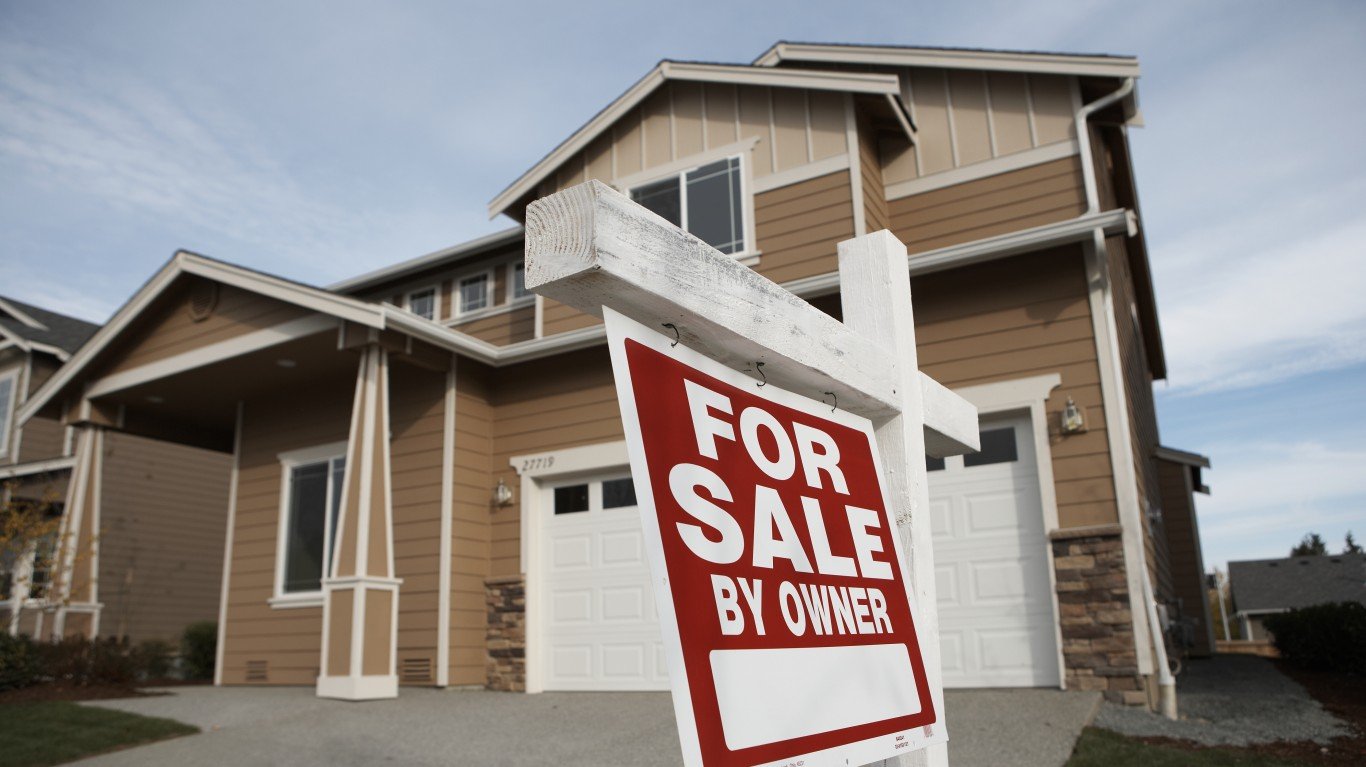

Housing demand surged during the peak of the COVID-19 pandemic. People fled large cities, as “work from home” allowed them to move to places where housing costs were lower and the quality of living was higher. Another driver of the phenomenon was historically low mortgage rates, which fell below 3% in some cases. This made homes more affordable. Those days are over. Mortgage rates rose to 6%. However, by surprise, recently, they backed down below 5%. This gave house hunters some relief–until this week. (Here is how much home you can buy for $200K in every state.)
In the past year, mortgage rates surged due to the Federal Reserve’s rate hikes, impacting nearly every other interest rate nationwide. The Fed’s move aimed to curb inflation, which reached a peak of 8% year over year in early 2023. However, the pace of this increase has since decelerated, leading to an assumption that the Fed had completed its mission. However, fresh indications suggest that elevated inflation persists, necessitating the Fed’s continued efforts to raise rates throughout the remainder of the year. At least, that is what many Fed watchers believe.
The new worry about inflation has moved mortgage rates up again. The average rate on a long-term mortgage averaged 6.57% last week. People without good credit will need to pay 7% or more. ABC reported, “The average long-term U.S. mortgage rate rose this week to its highest level since mid-March, driving up borrowing costs for prospective homebuyers facing a housing market that’s constrained by a dearth of homes for sale.”
What does this mean? The first thing is that the housing shortage will linger. People who got 3% mortgage rates during the last decade will hang on to homes because they have relatively low payments. And people who cannot afford homes because of high-interest rates will stay out of the market. It is a perfect storm to keep the supply of housing low.
Often, buyers do not understand how much a 7% mortgage costs them monthly compared with one at 3%. That is, until they make a calculation. A mortgage payment of $1,000 two years ago has changed to one that will likely be at least $1,500 today. As was the case in March, people can’t afford to buy houses–again. (Click here to see where young people want to relocate to the most.)
Sponsored: Want to Retire Early? Here’s a Great First Step
Want retirement to come a few years earlier than you’d planned? Orare you ready to retire now, but want an extra set of eyes on your finances?
Now you can speak with up to 3 financial experts in your area for FREE. By simply clicking here you can begin to match with financial professionals who can help you build your plan to retire early. And the best part? The first conversation with them is free.
Click here to match with up to 3 financial pros who would be excited to help you make financial decisions.
Thank you for reading! Have some feedback for us?
Contact the 24/7 Wall St. editorial team.



